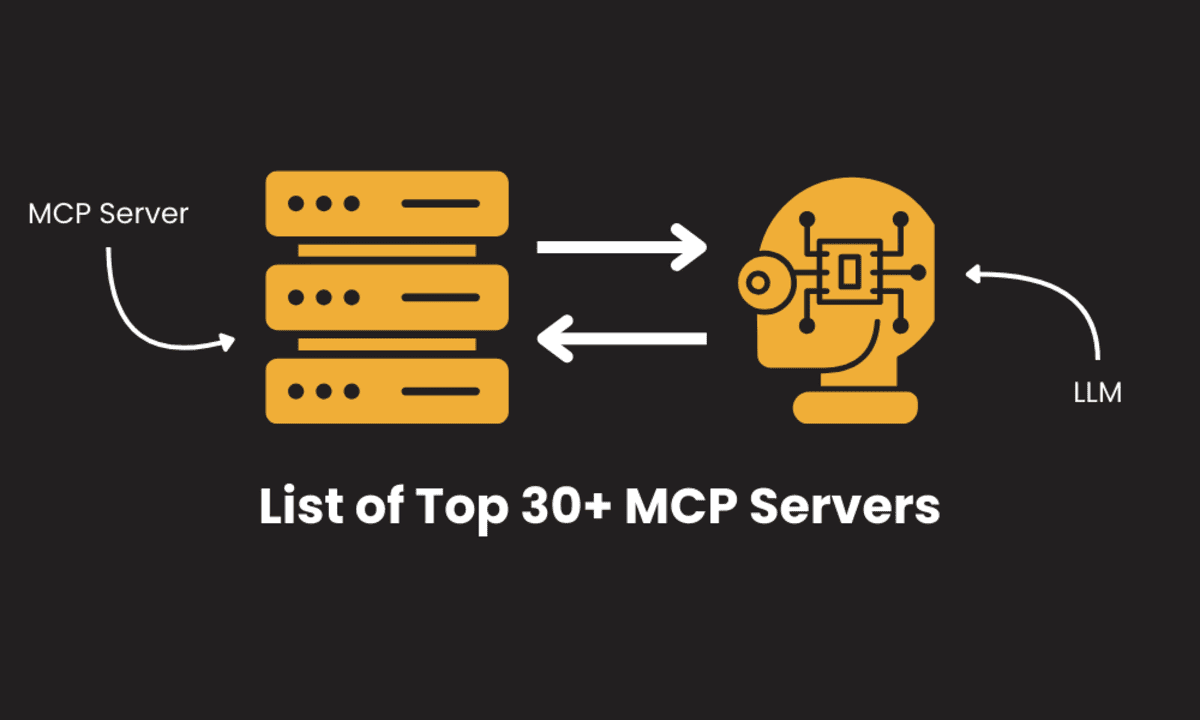Why DevOps Matters
This is part one of a three-part blog series based on Your Strategic Playbook for DevOps Victory.DevOps is crucial to accelerating and improving software development and engineering in the digital transformation process. Data shows that 73% of large enterprises believe that DevOps is essential to digital transformation, and 99% of organizations that have implemented DevOps have reported positive results.Embracing a DevOps mindset requires a cultural shift to create a more collaborative environment. By adopting a DevOps mindset, teams think more collaboratively about development, deployment, operations, and maintenance. Engineers can improve software quality, team collaboration, and customer satisfaction by employing DevOps strategies.However, to take advantage of the benefits of DevOps, organizational leaders need to understand what it is, how adopting DevOps practices benefit development teams, and why DevOps matters for achieving greater business outcomes. What Is DevOps?DevOps is a software engineering practice and culture that combines development and operations to improve software delivery speed and quality. DevOps’ capabilities include cloud infrastructure and migration, infrastructure as code, infrastructure engineering, solution architecture, system architecture, and test automation. These capabilities assist DevOps in elevating the quality of a service. DevOps’ Impact on Software DevelopmentIntegrating DevOps benefits most companies who incorporate it, as 61% of organizations reported that DevOps increased the quality of their products. It also prevents technical debt from growing by providing teams with unified tools to manage their software and infrastructure, giving teams the freedom and motivation to focus on what truly matters. Benefits of Adopting DevOps PracticesDevOps helps simplify the process for developers, allowing them to address issues quickly and more efficiently. Using DevOps helps teams be more efficient and encourage stronger teamwork by helping development teams attain the following:Shorter Feedback CyclesDevOps focuses on quick feedback, helping the team make decisions, learn fast, adjust, and try again. Succeeding at this requires combining technology, cultural attitudes, and processes. Successful change also involves identifying and shortening these feedback loops, allowing a team to understand accurately and react quickly.A key factor in shortening these feedback loops is observability, the ability to understand what a system is doing based on its outputs. Observability informs teams if potential problems in their systems are easy to diagnose.Logging, metrics, and tracing tools are common aspects of high-observability systems. You must pair them with product knowledge and architectural understanding to deliver maximum impact. Shorter feedback cycles shorten the development process, allowing teams to get products out faster.Empowered TeamsDevOps strategies can significantly improve the overall efficiency of software product teams. With DevOps adoption, teams work faster without waiting for permission or help from other teams.Not waiting for permission and giving teams the right tools helps them manage the product lifecycle, allowing teams to meet better user needs inside and outside the organization. In addition, DevOps encourages cross-functional teamwork, shared goals, and better alignment, improving collaboration and communication.Reduction in Repetitive, Manual TasksTeams often need to perform repetitive, manual work to keep a system running. As systems succeed and grow, the time and effort required to carry out this work increases.This “KTLO” (keep the lights on) work can take time, leaving less time for essential tasks and frustrating developers who want to focus on more rewarding work.The best way to reduce this manual work is to automate it. DevOps allows teams to use software engineering to automate tasks and improve system operations. Experts expect automation to eliminate 80% of routine IT tasks by 2025. Automating these routine tasks gives engineers more time to focus on higher-priority tasks.Repeatable Processes that Produce Predictable ResultsHow confident are you about disaster recovery? How quickly can your team scale the infrastructure your application relies on? With DevOps, infrastructure configurations become repeatable and reproducible. The code and data hold institutional knowledge instead of depending on people. If a key DevOps team member leaves tomorrow, they won't take the knowledge of your code, including historical and functional expertise, with them.Now, the team does not have to start from scratch. This knowledge is now part of the code and data, saving development teams time if someone leaves. The knowledge does not belong to just one person anymore.By leveraging infrastructure as code, the servers become more ephemeral, allowing the system to run between several servers depending on demand — key to the DevOps approach. DevOps teams then

This is part one of a three-part blog series based on Your Strategic Playbook for DevOps Victory.
DevOps is crucial to accelerating and improving software development and engineering in the digital transformation process. Data shows that 73% of large enterprises believe that DevOps is essential to digital transformation, and 99% of organizations that have implemented DevOps have reported positive results.
Embracing a DevOps mindset requires a cultural shift to create a more collaborative environment. By adopting a DevOps mindset, teams think more collaboratively about development, deployment, operations, and maintenance. Engineers can improve software quality, team collaboration, and customer satisfaction by employing DevOps strategies.
However, to take advantage of the benefits of DevOps, organizational leaders need to understand what it is, how adopting DevOps practices benefit development teams, and why DevOps matters for achieving greater business outcomes.
What Is DevOps?
DevOps is a software engineering practice and culture that combines development and operations to improve software delivery speed and quality. DevOps’ capabilities include cloud infrastructure and migration, infrastructure as code, infrastructure engineering, solution architecture, system architecture, and test automation. These capabilities assist DevOps in elevating the quality of a service.
DevOps’ Impact on Software Development
Integrating DevOps benefits most companies who incorporate it, as 61% of organizations reported that DevOps increased the quality of their products. It also prevents technical debt from growing by providing teams with unified tools to manage their software and infrastructure, giving teams the freedom and motivation to focus on what truly matters.
Benefits of Adopting DevOps Practices
DevOps helps simplify the process for developers, allowing them to address issues quickly and more efficiently. Using DevOps helps teams be more efficient and encourage stronger teamwork by helping development teams attain the following:
Shorter Feedback Cycles
DevOps focuses on quick feedback, helping the team make decisions, learn fast, adjust, and try again. Succeeding at this requires combining technology, cultural attitudes, and processes. Successful change also involves identifying and shortening these feedback loops, allowing a team to understand accurately and react quickly.A key factor in shortening these feedback loops is observability, the ability to understand what a system is doing based on its outputs. Observability informs teams if potential problems in their systems are easy to diagnose.
Logging, metrics, and tracing tools are common aspects of high-observability systems. You must pair them with product knowledge and architectural understanding to deliver maximum impact. Shorter feedback cycles shorten the development process, allowing teams to get products out faster.
Empowered Teams
DevOps strategies can significantly improve the overall efficiency of software product teams. With DevOps adoption, teams work faster without waiting for permission or help from other teams.Not waiting for permission and giving teams the right tools helps them manage the product lifecycle, allowing teams to meet better user needs inside and outside the organization. In addition, DevOps encourages cross-functional teamwork, shared goals, and better alignment, improving collaboration and communication.
Reduction in Repetitive, Manual Tasks
Teams often need to perform repetitive, manual work to keep a system running. As systems succeed and grow, the time and effort required to carry out this work increases.This “KTLO” (keep the lights on) work can take time, leaving less time for essential tasks and frustrating developers who want to focus on more rewarding work.
The best way to reduce this manual work is to automate it. DevOps allows teams to use software engineering to automate tasks and improve system operations. Experts expect automation to eliminate 80% of routine IT tasks by 2025. Automating these routine tasks gives engineers more time to focus on higher-priority tasks.
Repeatable Processes that Produce Predictable Results
How confident are you about disaster recovery? How quickly can your team scale the infrastructure your application relies on? With DevOps, infrastructure configurations become repeatable and reproducible. The code and data hold institutional knowledge instead of depending on people.If a key DevOps team member leaves tomorrow, they won't take the knowledge of your code, including historical and functional expertise, with them.Now, the team does not have to start from scratch. This knowledge is now part of the code and data, saving development teams time if someone leaves. The knowledge does not belong to just one person anymore.
By leveraging infrastructure as code, the servers become more ephemeral, allowing the system to run between several servers depending on demand — key to the DevOps approach. DevOps teams then modularize, compose, abstract, and repeat the infrastructure, which provides a significant advantage.
Developers often treat systems as pets when the reality is that they should treat them like livestock. With large-scale systems, things will go wrong, and reproduction is key. Knowing how to identify and replace any point of failure in your system is vital and keeps everything running smoothly.
These reproducible environments help with security. They reduce the need for people to work directly with production environments, making it easier to log, audit, and reconcile changes. These improvements to the development process and collaboration across teams are why DevOps is important.
DevOps Accelerates Pfizer’s Collaborative Efforts
DevOps is highly beneficial for organizations that need to move faster. When Pfizer needed to quicken its processes in light of COVID-19, DevOps helped them implement cloud migration, test automation, and other tools that accommodated the legacy system already in place.
Alongside a facilitated hands-on workshop, teams gained a shared language for seamless collaboration and created their new, faster environment, allowing them to produce products quickly. By integrating DevOps, Pfizer is able to stay at the forefront of innovation.
Organizations can streamline the development process and improve the quality of their products by implementing a DevOps playbook. Continue your DevOps journey by learning how to navigate the DevOps shift.














































































































































































![[The AI Show Episode 150]: AI Answers: AI Roadmaps, Which Tools to Use, Making the Case for AI, Training, and Building GPTs](https://www.marketingaiinstitute.com/hubfs/ep%20150%20cover.png)
![[The AI Show Episode 149]: Google I/O, Claude 4, White Collar Jobs Automated in 5 Years, Jony Ive Joins OpenAI, and AI’s Impact on the Environment](https://www.marketingaiinstitute.com/hubfs/ep%20149%20cover.png)































































































































![[PHP] Upgrading from PHP 7.4 to 8.1](https://media2.dev.to/dynamic/image/width%3D1000,height%3D500,fit%3Dcover,gravity%3Dauto,format%3Dauto/https:%2F%2Fdev-to-uploads.s3.amazonaws.com%2Fuploads%2Farticles%2Fqmaaabplfbcjejg2rr5n.png)






































































































































_ArtemisDiana_Alamy.jpg?width=1280&auto=webp&quality=80&disable=upscale#)



























































































![In the market for a new router? Here are 13 models to avoid, according to the FBI [U]](https://i0.wp.com/9to5mac.com/wp-content/uploads/sites/6/2025/04/Most-Americans-are-paying-more-for-broadband-%E2%80%93-here-are-four-solutions.jpg?resize=1200%2C628&quality=82&strip=all&ssl=1)




![Galaxy S25 Ultra gets ‘Arc’ case that leaves the phone mostly exposed – available for Pixel 9 too [Gallery]](https://i0.wp.com/9to5google.com/wp-content/uploads/sites/4/2025/05/arc-pulse-case-galaxy-s25-ultra-1.jpg?resize=1200%2C628&quality=82&strip=all&ssl=1)
















![Apple 15-inch M4 MacBook Air On Sale for $1023.86 [Lowest Price Ever]](https://www.iclarified.com/images/news/97468/97468/97468-640.jpg)



































































